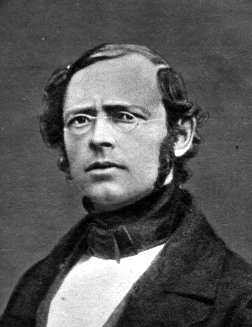History
In the early 19th century the foundation for pharmacology in Giessen was laid by Friedrich Wilhelm Vogt, who had already been giving lessons about pharmacodynamics and toxicology at the Hessian Ludoviciana University in 1817. In 1867 Rudolf Buchheim established a pharmacological institute in his accomodation at the Seltersberg, where he started doing researches in an experimental way as the leadoff pharmacologist.
Rudolf BuchheimRudolf Buchheim (1820-1879) is the originator of the experimental pharmacology. In the age of 47 he was nominated as a full professor for pharmacology and toxicology in Giessen. He introduced animal testing and researched in mechanisms of drug effects, whereby he provided a natural scientific basis for the pharmaceutics, which until then had been affected by evidence-based medicine, tradition and myths. For this reason pharmacology became a new, separate field in medical science ranged beside physiology and the newly invented experimental pathology. Therefore Buchheim is justifiably to be called the first ‘real’ pharmacologist. Contribution to the festschrift ‘The medical faculty of the university Giessen’Pharmacotherapy is currently the most important pillar in preventing and treating infections and is part of daily life of many people. It is unbelievable, that still in the beginning of the 19th century pharmaceutics had been conditioned by historical tradition and myths. More .... |
 |
